“When the community comes together, [it is] a beautiful thing to see through this tragedy. No one asked about party affiliations...we can come together. We need to focus on each other.”
Zsofia Pasztor prefaced this quote by reciting the saying “If there’s a will, there’s a way.” These statements speak volumes about Zsofia's zeal for her work and love for her community. Zsofia is the Executive Co-Director and Founder of Farmer Frog, a “hands-on outdoor education” nonprofit based out of Woodinville, Washington. Yet Farmer Frog is about so much more than simply gardening and has been since its inception in 2009. Zsofia said the organization grew out of an effort to help families forced to live out of their cars in the local Olivia Park Elementary School parking lot after the 2008 financial crisis. She created a school garden that successfully fed hundreds of families. After Farmer Frog was established, they brought gardening into the classroom, and increased their educational offerings, such as a lesson on how to grow outdoor edible gardens as well as various horticulture classes. They also began to offer teacher training, camp activities, field trips, and youth events at their HQ Paradise Farm facility and at school sites. More recently, Farmer Frog further evolved in response to the COVID-19 pandemic, and Zsofia told me that they began bringing food to residents who were confined to their homes. The organization has grown exponentially and currently serves more than 500,000 families, with the help of numerous partner groups. None of this would be possible without Zsofia’s passion for food cultivation.
She explained that she was eight years old when she first began caring for plants and gardens. Her love for this work blossomed into career interests, and she received multiple certifications, including being a CPH, an EPC, TRAQ (Tree Risk Assessor Qualified), a certified arborist, horticulturist, permaculture designer, LID consultant and designer, and commercial urban agriculturist. Zsofia is also a landscape designer. She shared the joy she gets out of “taking care of life and people.” She further elaborated what this means to her:
.png)
“We are working to leave a footprint on the world for future generations. It is tangible, not heavy but light. We create habitats for wildlife, our growing spaces helping the ecosystem, [so we] don’t need to worry about a negative impact. We are doing our best to leave this place better than we found it.”
.png)
Farmer Frog has certainly had an impact on the lives of many within the past year. They developed partnerships with new organizations that helped with providing produce and distributing it, according to Zsofia. Some of these groups are EastWest Food Rescue, National Tribal Emergency Management Council, International Nutritional Sustainable Partners, Culturas Unidas Food Network, The Silent Task Force, Nakani Native Program, as well as “over 600 churches, schools, school districts, food banks, food pantries, and grassroots organizations,” said Zsofia. Earlier on in the pandemic, Farmer Frog, in partnership with EastWest Food Rescue, mainly sourced food from external farms, and Zsofia added that their internal production went down. Currently, however, Farmer Frog is “shifting back to focusing on produce that is hard to get from other folks,” particularly greens, which Zsofia said are more difficult to transport.
.png)
Zsofia also explained how they originally came in contact with The Farmlink Project: “We first talked to Farmlink back in last summer when our EastWest Food Rescue and Farmer Frog team made a joint call and talked to several people, including Lindsay.” She is referring to Lindsay Carlin, co-lead of the Hunger Outreach Team/Placement Team at The Farmlink Project, who has helped coordinate deliveries with Farmer Frog and connected me with Zsofia. Since mid-December, The Farmlink Project has facilitated the delivery of 255,000 pounds of onions and 42,500 pounds of potatoes to Farmer Frog from Easterday Farms in Pasco, Washington and Jensen Family Produce in Warden, Washington.
So who has this produce served? Parts of these loads were delivered directly to residents throughout Washington state, while other parts were delivered in a more unconventional way: airlifts. Zsofia said Farmer Frog has helped with the National Tribal Emergency Management Council’s airlift project to fly PPE and food to remote villages and tribes—places that are difficult to reach for delivery trucks. She expressed gratitude to the DART pilots who volunteered their time, fuel, and planes to carry out this important mission. Zsofia explained that Farmer Frog has served “people who haven’t seen fresh food for weeks.” She emphasized ways in which those delivering food would provide the recipients with a “connection to the real world” and someone to chat with from their window when they couldn’t otherwise interact with people face to face.
.png)
Zsofia is a force to be reckoned with. She has dedicated herself to helping grow Farmer Frog from a community-based organization that served about 25,000 people to one that serves over 2 million people in Washington state and 1 million people across the rest of the US, 315,000 of which are indigenous tribal members. Through their work with the National Tribal Emergency Management Council, they have also delivered to tribes in 34 states. Still, Zsofia’s mission always returns to metaphorically, and literally, planting the seed. In her eyes, education about growing food is of the utmost importance: “People’s eyes light up because they now understand something they didn’t before….The best customer is an educated customer.” She shares the same goals as The Farmlink Project: to get nutritious, fresh food into the hands of those who need it most.
To learn more about Zsofia, check out her Farmer Frog profile and TED talk.
< Back
“When the community comes together, [it is] a beautiful thing to see through this tragedy. No one asked about party affiliations...we can come together. We need to focus on each other.”
Zsofia Pasztor prefaced this quote by reciting the saying “If there’s a will, there’s a way.” These statements speak volumes about Zsofia's zeal for her work and love for her community. Zsofia is the Executive Co-Director and Founder of Farmer Frog, a “hands-on outdoor education” nonprofit based out of Woodinville, Washington. Yet Farmer Frog is about so much more than simply gardening and has been since its inception in 2009. Zsofia said the organization grew out of an effort to help families forced to live out of their cars in the local Olivia Park Elementary School parking lot after the 2008 financial crisis. She created a school garden that successfully fed hundreds of families. After Farmer Frog was established, they brought gardening into the classroom, and increased their educational offerings, such as a lesson on how to grow outdoor edible gardens as well as various horticulture classes. They also began to offer teacher training, camp activities, field trips, and youth events at their HQ Paradise Farm facility and at school sites. More recently, Farmer Frog further evolved in response to the COVID-19 pandemic, and Zsofia told me that they began bringing food to residents who were confined to their homes. The organization has grown exponentially and currently serves more than 500,000 families, with the help of numerous partner groups. None of this would be possible without Zsofia’s passion for food cultivation.
She explained that she was eight years old when she first began caring for plants and gardens. Her love for this work blossomed into career interests, and she received multiple certifications, including being a CPH, an EPC, TRAQ (Tree Risk Assessor Qualified), a certified arborist, horticulturist, permaculture designer, LID consultant and designer, and commercial urban agriculturist. Zsofia is also a landscape designer. She shared the joy she gets out of “taking care of life and people.” She further elaborated what this means to her:
.png)
“We are working to leave a footprint on the world for future generations. It is tangible, not heavy but light. We create habitats for wildlife, our growing spaces helping the ecosystem, [so we] don’t need to worry about a negative impact. We are doing our best to leave this place better than we found it.”
.png)
Farmer Frog has certainly had an impact on the lives of many within the past year. They developed partnerships with new organizations that helped with providing produce and distributing it, according to Zsofia. Some of these groups are EastWest Food Rescue, National Tribal Emergency Management Council, International Nutritional Sustainable Partners, Culturas Unidas Food Network, The Silent Task Force, Nakani Native Program, as well as “over 600 churches, schools, school districts, food banks, food pantries, and grassroots organizations,” said Zsofia. Earlier on in the pandemic, Farmer Frog, in partnership with EastWest Food Rescue, mainly sourced food from external farms, and Zsofia added that their internal production went down. Currently, however, Farmer Frog is “shifting back to focusing on produce that is hard to get from other folks,” particularly greens, which Zsofia said are more difficult to transport.
.png)
Zsofia also explained how they originally came in contact with The Farmlink Project: “We first talked to Farmlink back in last summer when our EastWest Food Rescue and Farmer Frog team made a joint call and talked to several people, including Lindsay.” She is referring to Lindsay Carlin, co-lead of the Hunger Outreach Team/Placement Team at The Farmlink Project, who has helped coordinate deliveries with Farmer Frog and connected me with Zsofia. Since mid-December, The Farmlink Project has facilitated the delivery of 255,000 pounds of onions and 42,500 pounds of potatoes to Farmer Frog from Easterday Farms in Pasco, Washington and Jensen Family Produce in Warden, Washington.
So who has this produce served? Parts of these loads were delivered directly to residents throughout Washington state, while other parts were delivered in a more unconventional way: airlifts. Zsofia said Farmer Frog has helped with the National Tribal Emergency Management Council’s airlift project to fly PPE and food to remote villages and tribes—places that are difficult to reach for delivery trucks. She expressed gratitude to the DART pilots who volunteered their time, fuel, and planes to carry out this important mission. Zsofia explained that Farmer Frog has served “people who haven’t seen fresh food for weeks.” She emphasized ways in which those delivering food would provide the recipients with a “connection to the real world” and someone to chat with from their window when they couldn’t otherwise interact with people face to face.
.png)
Zsofia is a force to be reckoned with. She has dedicated herself to helping grow Farmer Frog from a community-based organization that served about 25,000 people to one that serves over 2 million people in Washington state and 1 million people across the rest of the US, 315,000 of which are indigenous tribal members. Through their work with the National Tribal Emergency Management Council, they have also delivered to tribes in 34 states. Still, Zsofia’s mission always returns to metaphorically, and literally, planting the seed. In her eyes, education about growing food is of the utmost importance: “People’s eyes light up because they now understand something they didn’t before….The best customer is an educated customer.” She shares the same goals as The Farmlink Project: to get nutritious, fresh food into the hands of those who need it most.
To learn more about Zsofia, check out her Farmer Frog profile and TED talk.
Zsofia Pasztor
Executive Co-Director and Founder of Farmer Frog
“When the community comes together, [it is] a beautiful thing to see through this tragedy. No one asked about party affiliations...we can come together. We need to focus on each other.”
Zsofia Pasztor prefaced this quote by reciting the saying “If there’s a will, there’s a way.” These statements speak volumes about Zsofia's zeal for her work and love for her community. Zsofia is the Executive Co-Director and Founder of Farmer Frog, a “hands-on outdoor education” nonprofit based out of Woodinville, Washington. Yet Farmer Frog is about so much more than simply gardening and has been since its inception in 2009. Zsofia said the organization grew out of an effort to help families forced to live out of their cars in the local Olivia Park Elementary School parking lot after the 2008 financial crisis. She created a school garden that successfully fed hundreds of families. After Farmer Frog was established, they brought gardening into the classroom, and increased their educational offerings, such as a lesson on how to grow outdoor edible gardens as well as various horticulture classes. They also began to offer teacher training, camp activities, field trips, and youth events at their HQ Paradise Farm facility and at school sites. More recently, Farmer Frog further evolved in response to the COVID-19 pandemic, and Zsofia told me that they began bringing food to residents who were confined to their homes. The organization has grown exponentially and currently serves more than 500,000 families, with the help of numerous partner groups. None of this would be possible without Zsofia’s passion for food cultivation.
She explained that she was eight years old when she first began caring for plants and gardens. Her love for this work blossomed into career interests, and she received multiple certifications, including being a CPH, an EPC, TRAQ (Tree Risk Assessor Qualified), a certified arborist, horticulturist, permaculture designer, LID consultant and designer, and commercial urban agriculturist. Zsofia is also a landscape designer. She shared the joy she gets out of “taking care of life and people.” She further elaborated what this means to her:
.png)
“We are working to leave a footprint on the world for future generations. It is tangible, not heavy but light. We create habitats for wildlife, our growing spaces helping the ecosystem, [so we] don’t need to worry about a negative impact. We are doing our best to leave this place better than we found it.”
.png)
Farmer Frog has certainly had an impact on the lives of many within the past year. They developed partnerships with new organizations that helped with providing produce and distributing it, according to Zsofia. Some of these groups are EastWest Food Rescue, National Tribal Emergency Management Council, International Nutritional Sustainable Partners, Culturas Unidas Food Network, The Silent Task Force, Nakani Native Program, as well as “over 600 churches, schools, school districts, food banks, food pantries, and grassroots organizations,” said Zsofia. Earlier on in the pandemic, Farmer Frog, in partnership with EastWest Food Rescue, mainly sourced food from external farms, and Zsofia added that their internal production went down. Currently, however, Farmer Frog is “shifting back to focusing on produce that is hard to get from other folks,” particularly greens, which Zsofia said are more difficult to transport.
.png)
Zsofia also explained how they originally came in contact with The Farmlink Project: “We first talked to Farmlink back in last summer when our EastWest Food Rescue and Farmer Frog team made a joint call and talked to several people, including Lindsay.” She is referring to Lindsay Carlin, co-lead of the Hunger Outreach Team/Placement Team at The Farmlink Project, who has helped coordinate deliveries with Farmer Frog and connected me with Zsofia. Since mid-December, The Farmlink Project has facilitated the delivery of 255,000 pounds of onions and 42,500 pounds of potatoes to Farmer Frog from Easterday Farms in Pasco, Washington and Jensen Family Produce in Warden, Washington.
So who has this produce served? Parts of these loads were delivered directly to residents throughout Washington state, while other parts were delivered in a more unconventional way: airlifts. Zsofia said Farmer Frog has helped with the National Tribal Emergency Management Council’s airlift project to fly PPE and food to remote villages and tribes—places that are difficult to reach for delivery trucks. She expressed gratitude to the DART pilots who volunteered their time, fuel, and planes to carry out this important mission. Zsofia explained that Farmer Frog has served “people who haven’t seen fresh food for weeks.” She emphasized ways in which those delivering food would provide the recipients with a “connection to the real world” and someone to chat with from their window when they couldn’t otherwise interact with people face to face.
.png)
Zsofia is a force to be reckoned with. She has dedicated herself to helping grow Farmer Frog from a community-based organization that served about 25,000 people to one that serves over 2 million people in Washington state and 1 million people across the rest of the US, 315,000 of which are indigenous tribal members. Through their work with the National Tribal Emergency Management Council, they have also delivered to tribes in 34 states. Still, Zsofia’s mission always returns to metaphorically, and literally, planting the seed. In her eyes, education about growing food is of the utmost importance: “People’s eyes light up because they now understand something they didn’t before….The best customer is an educated customer.” She shares the same goals as The Farmlink Project: to get nutritious, fresh food into the hands of those who need it most.
To learn more about Zsofia, check out her Farmer Frog profile and TED talk.
.png)
.png)

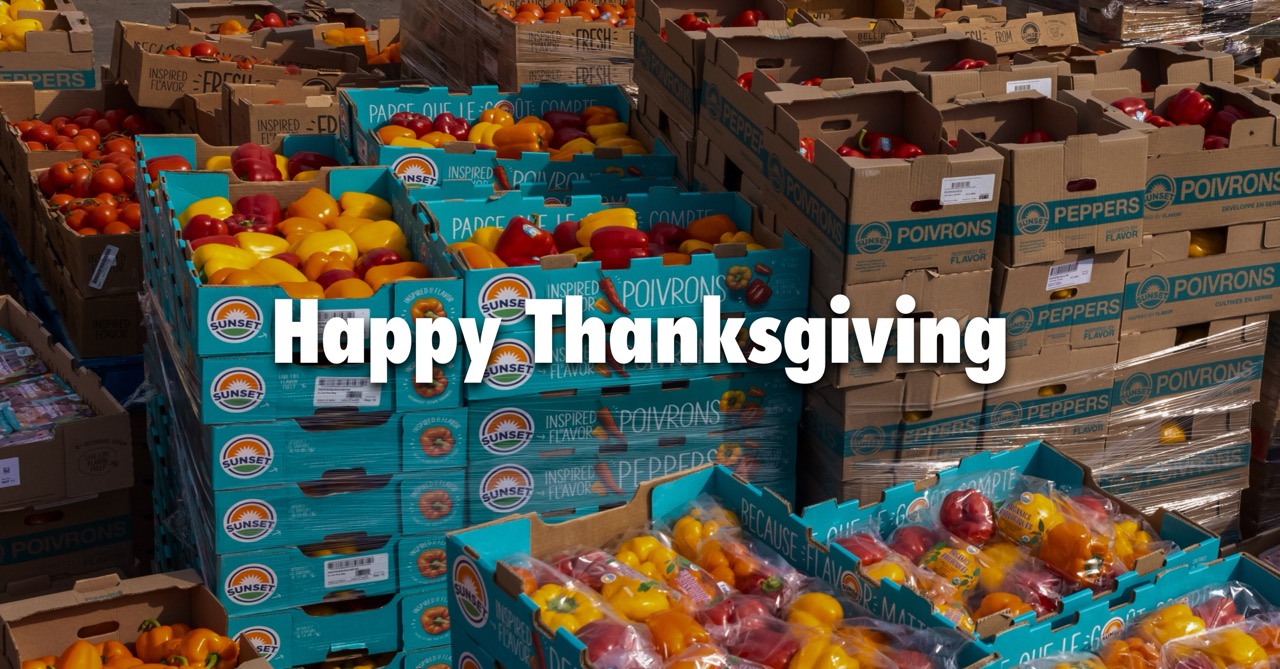
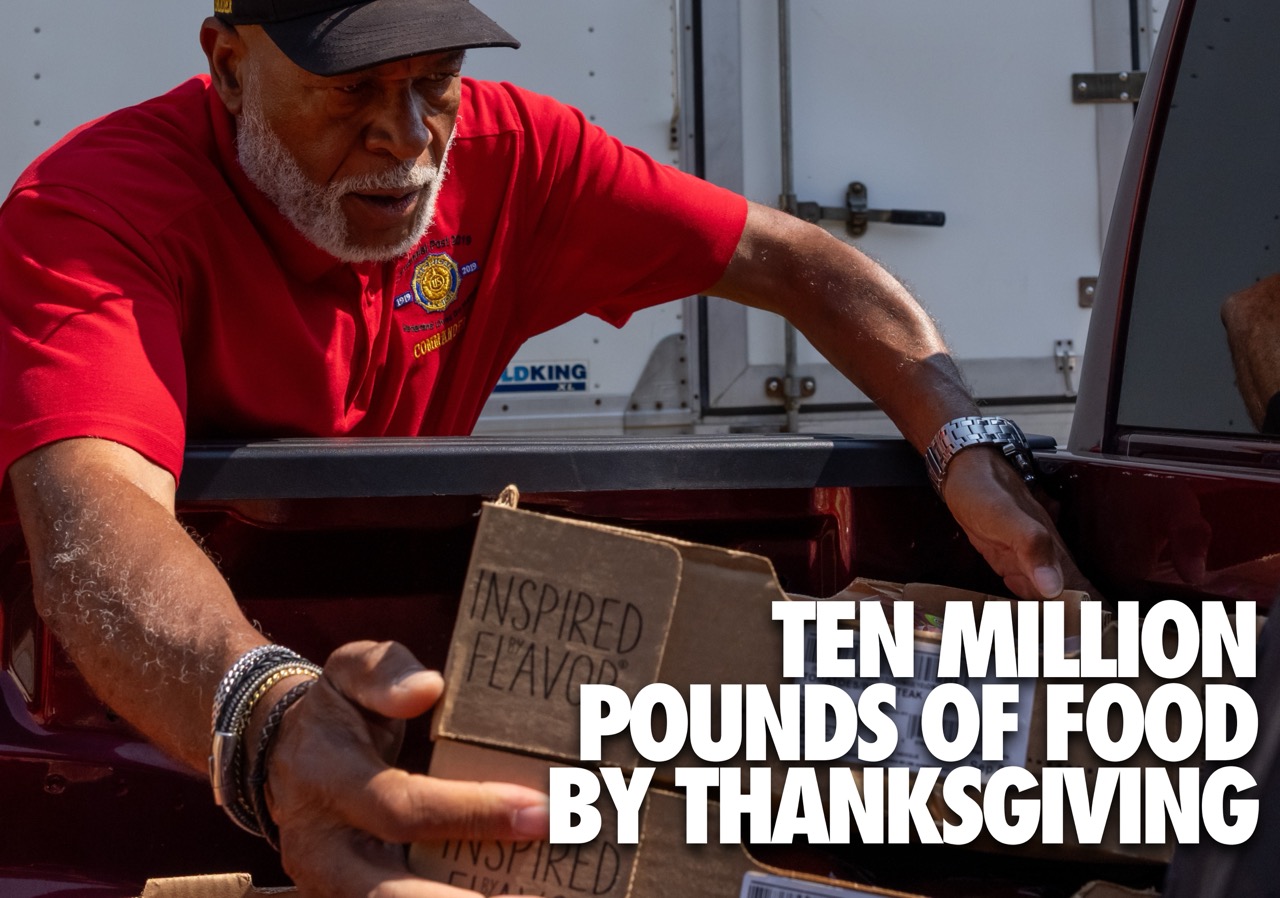
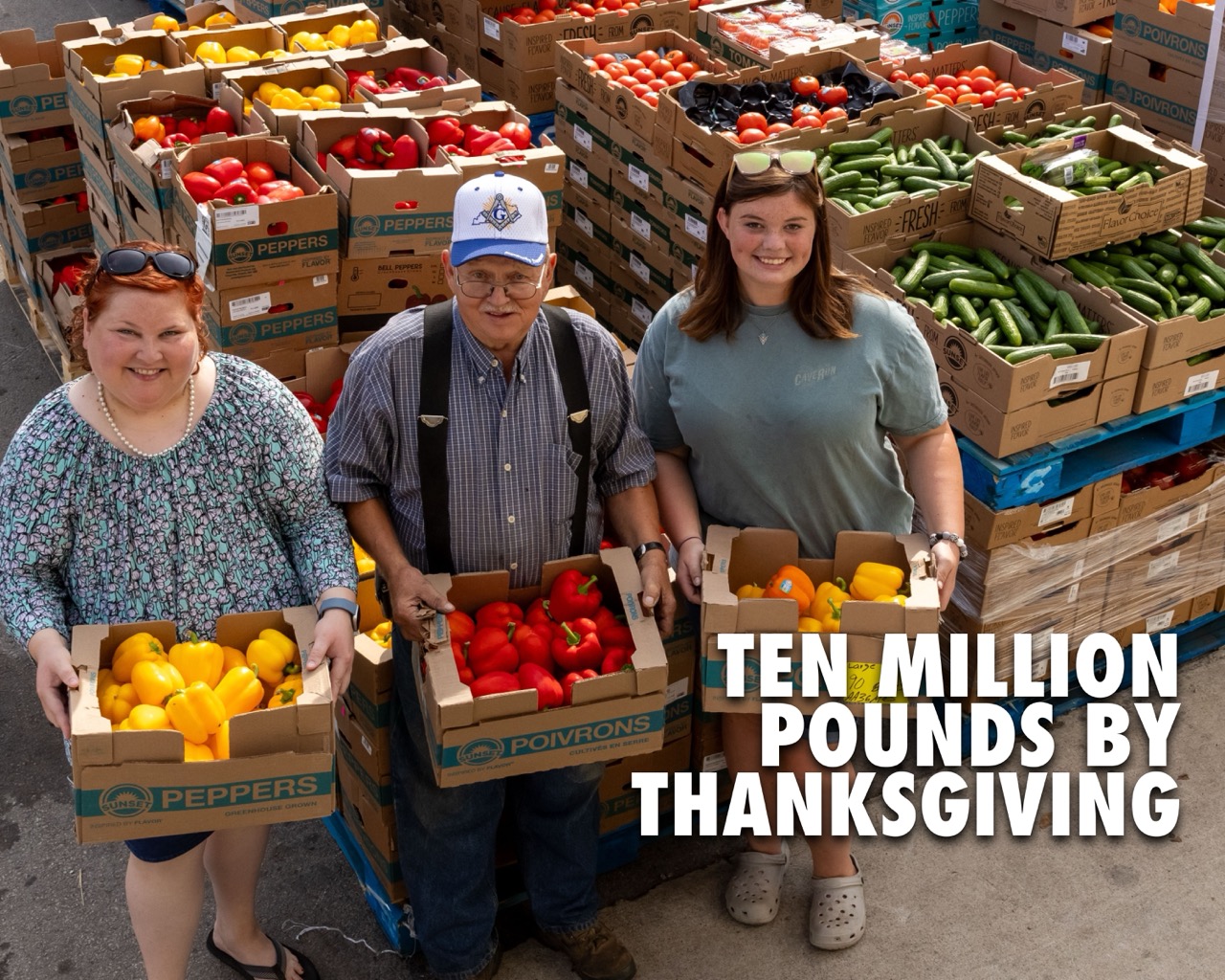
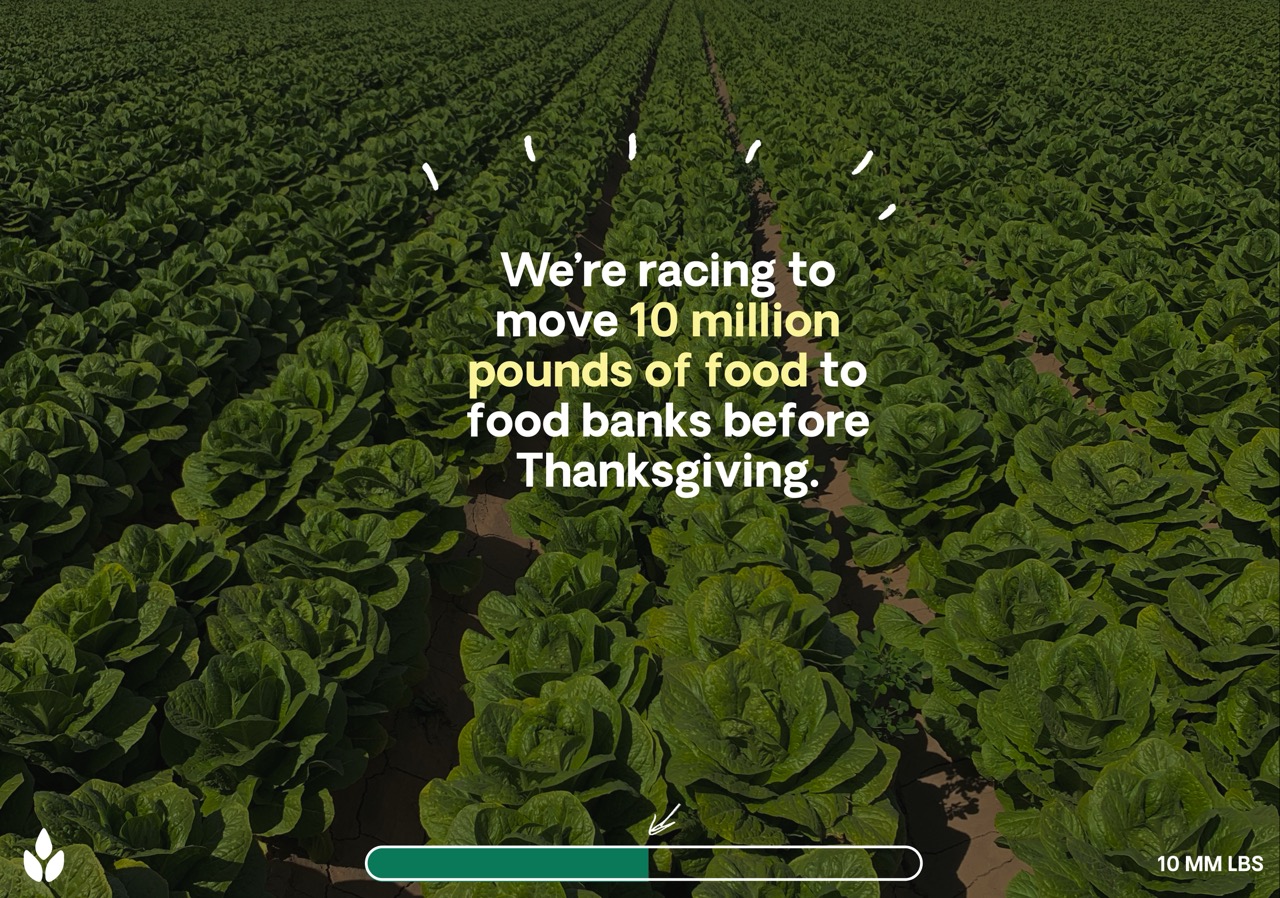
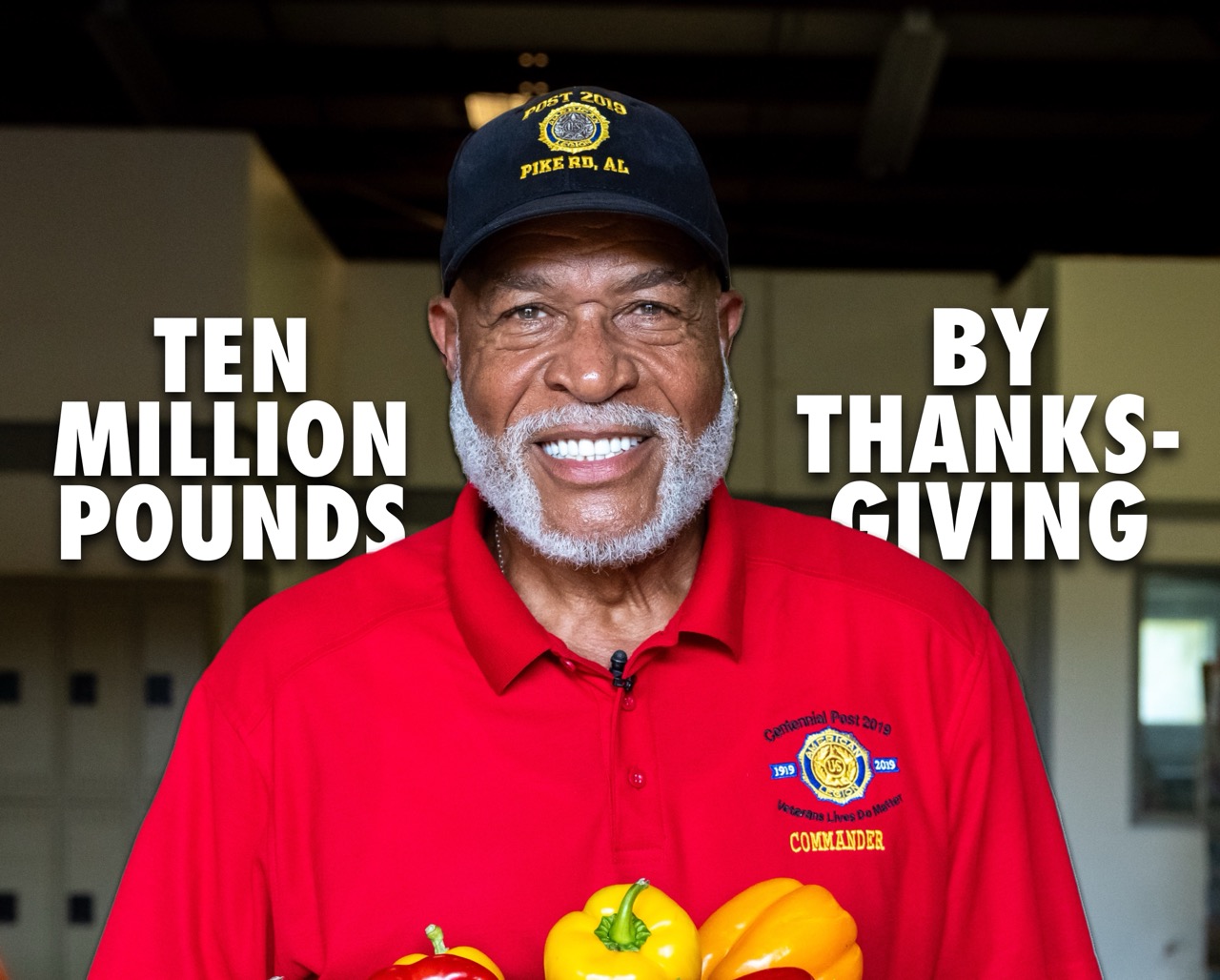
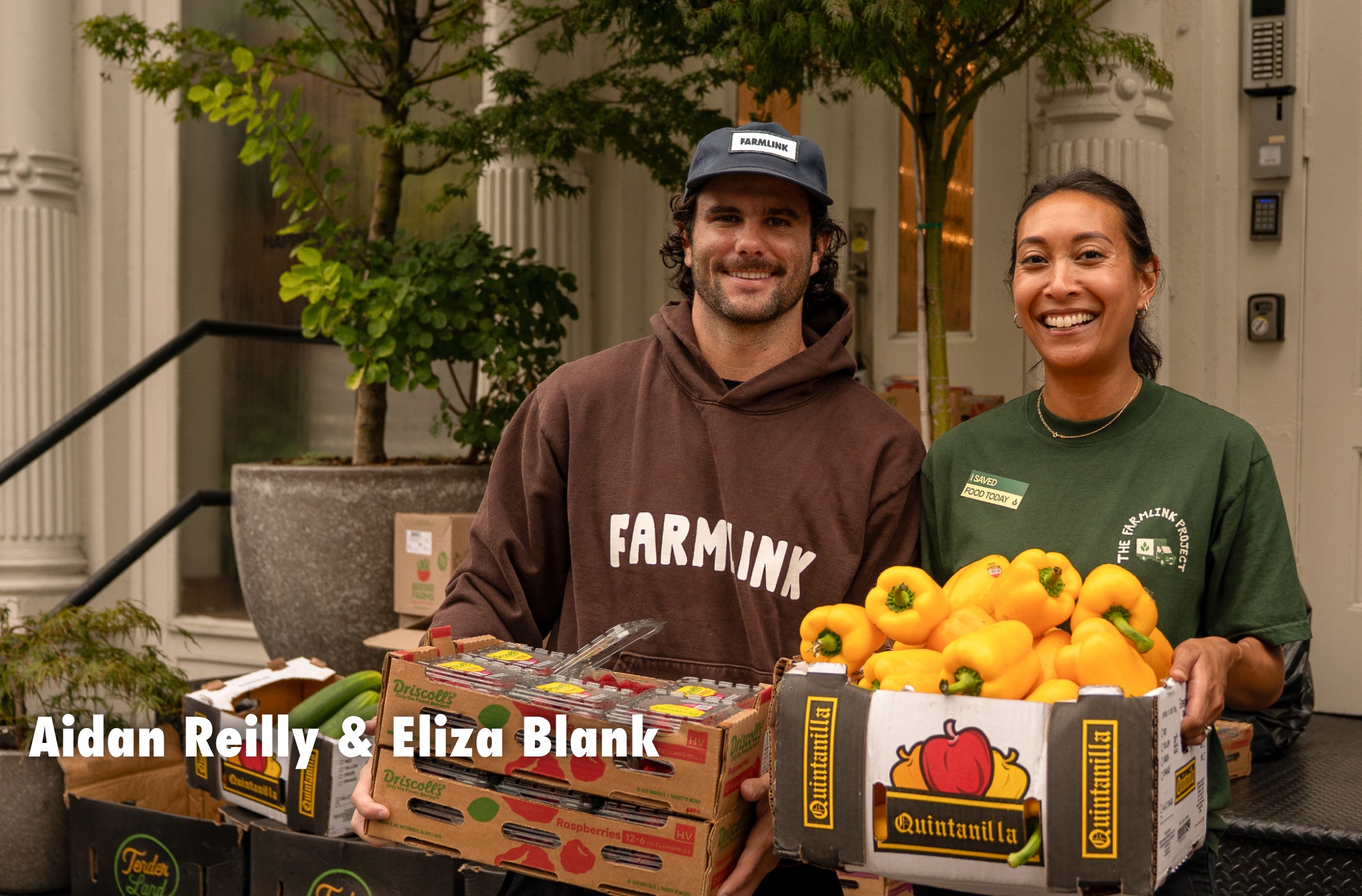
.svg)
.svg)
.svg)